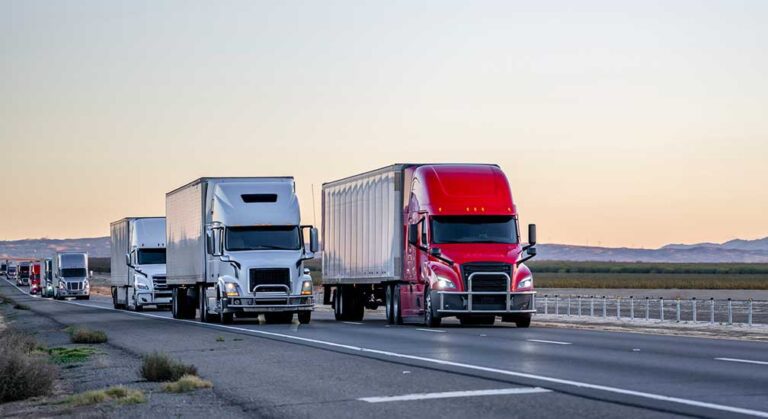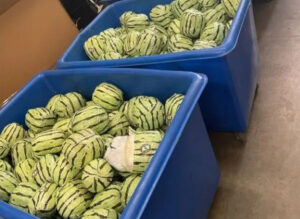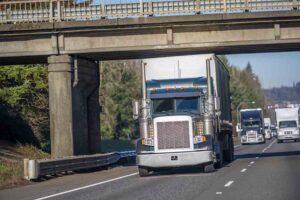WASHINGTON — More than $180 million in federal grants are available to help promote road safety and the safe operation of commercial motor vehicles (CMVs).
On March 4, the Federal Motor Carrier Safety Administration (FMCSA) announced the availability of the grants, which are part of the funding included in the Bipartisan Infrastructure Law. Applications are open to state, territorial and tribal organizations; local jurisdictions; academic institutions; and other training programs and entities to promote commercial motor vehicle (CMV) safety-related activities.
“When we improve technology, training, and tools to make our roadways safer for truck and bus drivers, everyone benefits,” said U.S. Secretary of Transportation Pete Buttigieg. “The Biden-Harris administration is proud to announce more than $180 million to make commercial vehicle driving safer and more efficient while creating onramps for veterans and military families entering these great careers.”
According to a press release from the FMCSA, funding opportunities are available through five discretionary grant programs:
- High Priority Innovative Technology Deployment Grant Program: Supports innovative and impactful projects that advance the technological capability and promote the deployment of intelligent transportation system applications for truck parking information management systems and other CMV operations; support and maintain CMV information systems/networks to link federal motor carrier safety information systems with state CMV systems; improve safety and productivity of CMVs and commercial drivers; and reduce costs associated with CMV operations and regulatory requirements.
- High Priority Commercial Motor Vehicle Safety Grant Program: Funds CMV safety-related activities that increase public awareness and education on CMV safety, target unsafe driving in high-risk crash corridors, demonstrate new technologies to improve CMV safety, improve safety data and support other projects that help meet FMCSA’s mission of improving CMV safety nationwide.
- Commercial Motor Vehicle Operator Safety Training Grant Program: Funds organizations providing CMV operator training with the goal of enhancing training access to current and former members of the U.S. armed forces and their families, as well as underserved and refugee communities.
- Commercial Driver’s License Program Implementation Grant Program: Helps implement and enhance the national commercial driver’s license (CDL) program, which is focused on ensuring each CDL driver has only one driving record and licensing document, commonly referred to as “One Driver — One License — One Record.”
- High Priority Enforcement Training and Support Grant Program: Funds the development and delivery of motor carrier safety training to non-federal employees who conduct CMV enforcement activities in accordance with Federal Motor Carrier Safety Regulations (FMCSR), Hazardous Materials Regulations (HMR) and the Commercial Vehicle Safety Alliance’s (CVSA) out-of-service criteria; and to develop related training materials to increase awareness and education on CMV safety and otherwise improve CMV safety.
“FMCSA’s core mission is safety. That’s a big job, one we cannot do alone,” said FMCSA Acting Deputy Administrator Sue Lawless. “This grant funding is one way we bring in safety partners to help reduce crashes involving large trucks and buses. We are proud to support the critical CMV safety work happening across the country.”
Grant applications for the fiscal year 2024 cycle are due by 5 p.m. Eastern time Friday, April 19, 2024. The complete Notice of Funding Opportunity announcements can be found at Grants.gov. Details about funding amounts, application requirements, and applicant and project eligibility can be found on FMCSA’s Grants website.
Born and raised in Little Rock, AR, Erica N. Guy decided to stay in her hometown to begin her professional career in journalism. Since obtaining her bachelor’s degree from UAPB, Erica has professionally written for several publications about several topics ranging from lifestyle, tech, culture, and entertainment, just to name a few. Continuing her love for her hometown, she joined our team in June 2023, where she is currently a staff writer. Her career goals include continuing storytelling through her writing by being the best professional writer she can be. In her spare time, Erica enjoys trying new foods, cozying up with a good book, spending time with family and friends, and establishing herself as a future businesswoman.












Spend the money on better training drivers, and it would save more lives then all the other safety stuff by a wide margin.
Spend the money on better training for drivers.